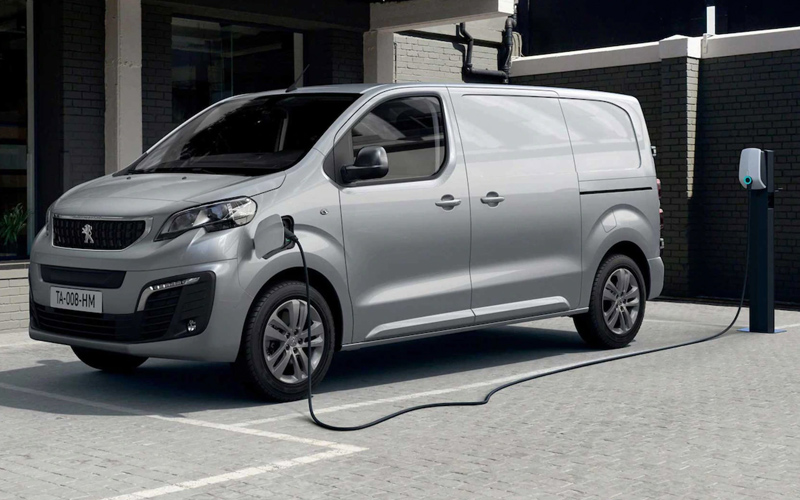Everything You Need to Know About Electric Van Charging Infrastructure

If you’re thinking about getting an electric van, you’ll want to be clued up on the available charging infrastructure.
In this guide, we’ll outline all you need to know about EV charging infrastructure, so you can understand how it works and how to access it. Read on to learn more.
What is electric vehicle charging infrastructure?
This refers to the network of components and systems that enable the charging of electric vehicles. Three key elements of charging infrastructure include:
- Chargepoints: The physical locations featuring charging equipment where EVs can recharge.
- Connectors and cables: These facilitate the connection between the chargepoint and the vehicle.
- Power supply: The connectors and chargepoints rely on a power source, which may come from the grid, renewable sources, or both.
Benefits of EV charging infrastructure
The development of EV charging infrastructure has many advantages. These include:
- Promotion of EV adoption: Enhances EV popularity by addressing charging accessibility concerns.
- Reduced range anxiety: With more charging stations, concerns of running out of charge will be reduced.
- Less noise and air pollution: If more people drive EVs, there will be numerous environmental benefits.
- Job creation: There will be employment opportunities associated with the installation of chargepoints.
- Reduced dependence on fossil fuels: EVs are a step in the right direction for decarbonising our nation.
EV charging station types
There are three main types of charging station that you will find in the UK. These have different purposes, and the biggest difference you’ll notice is the length of time it takes to charge your van.
Level 1
These are also known as slow charging facilities. They are commonly found in homes or workplaces, where people can leave their vehicles charging for long periods. They typically deliver 3.6kW, which can charge a vehicle to full in around 8-12 hours.
Level 2
These are also referred to as fast charging stations. They are the most common type of infrastructure on the UK’s public network. They generally provide between 7 – 22kW. The typical full charge time for 7kW points is around 4-6 hours. A22kW chargepoint takes between 1-2 hours for a full charge.
Level 3
These rapid charging stations are the quickest way to charge your electric vehicle. As a result, they are generally the most expensive option too. You can find these types of chargepoints in motorway service stations. The most common type delivers between 50kW – 150kW. However, some provide up to 350kW. Depending on your vehicle and the power level provided, an 80% charge can be achieved within 20 minutes.
EV charging station locations
For private use, most people install a chargepoint at their home, typically a wallbox on a driveway or in a garage. This method is the most convenient way to charge EVs. Having access to a personal chargepoint allows you to park your van overnight and wake up to a fully charged vehicle in the morning.
For public use, there are chargepoints in communal spaces like car parks, service stations, or on roads in residential areas.
Where is the largest EV charging hub in the UK?
The UK’s largest EV charging hub is located at the NEC in Birmingham. It provides a range of fast and rapid chargepoint options for visitors.
EV charging station networks in the UK
There are numerous chargepoint network operators across the UK. These aim to make public charging easy and accessible for EV drivers.
Many networks provide a mobile app for convenient access to charging stations and payment processing. Some networks offer members discounts or free charges at selected points.
The most common EV networks in the UK include:
- Pod Point
- bp pulse
- ChargePlace Scotland
- Osprey
- Shell Recharge
- Fastned
- InstaVolt
- IONITY
EV charging station costs
The price you pay for EV charging depends on whether you invest in a home charger or use public chargepoints.
For home charging, firstly you will have to pay to get the chargepoint installed. Costs can vary, but you can expect this to be between £800 - £1,500 depending on the provider. For usage, electricity costs fluctuate. As a rough estimate, you can expect to pay around £20 for a full charge on a vehicle with a 60kW battery. For the most accurate figures, however, please contact your energy provider.
For public charging, costs will vary depending on the charging station, the charging speed, and local electricity rates. Use ZapMap’s handy calculator to work out how much it will cost to charge your EV.
What are the barriers to EV charging infrastructure?
The main barriers to developing EV charging infrastructure may include:
- High initial costs and lack of funding
- Limited grid capacity in some places
- Land use restrictions
- A lack of public awareness of the benefits of EVs
- Accommodating the chargepoints in densely populated areas
One of the primary barriers to widespread EV adoption is the perceived lack of charging infrastructure. It's a cyclical process whereby increased infrastructure leads to heightened confidence in EVs. As the number of EVs on the road rises, the demand for infrastructure further increases. This prompts the development of more chargepoints.
The government is working to increase the number of public chargepoints across the country. The On-Street Residential Chargepoint Scheme is one way in which this is being deployed. As electric vans increase in popularity, infrastructure needs to improve to meet this demand.
If you need any guidance on choosing the right electric van for your business needs, contact our expert team today.
Stay up to date with the latest van news and reviews by checking out our Blog.
Find this electric van article interesting?
Check out our Electric Van Hub where you'll find even more useful information such as the benefits of electric vans and electric van reviews.
















